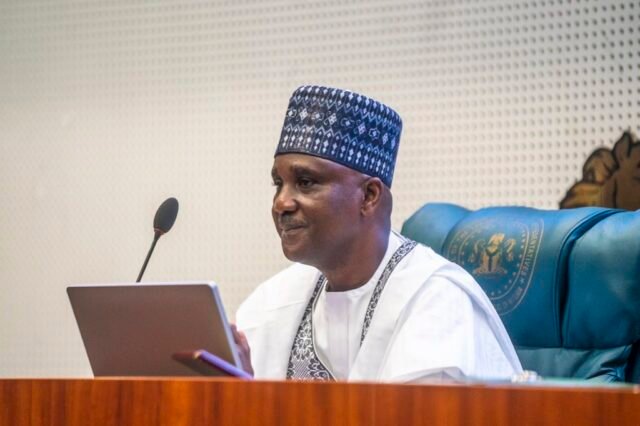The House of Reps has announced plans to introduce a legal framework that will regulate cryptocurrency and Point-of-Sale (POS) operations across Nigeria. This development comes amid rising concerns about online fraud, untraceable transactions, and the need to protect citizens engaging in digital finance.
During an inauguration ceremony in Abuja on Monday, Speaker Tajudeen Abbas stated that the initiative marks a major step toward strengthening Nigeria’s financial ecosystem. According to him, while digital finance and cryptocurrency offer innovation and job opportunities, they also present serious security and economic risks if left unregulated.
“The digital economy has grown beyond imagination,” Abbas said. “Our goal at the House of Reps is not to suffocate innovation, but to create a system that protects consumers and the integrity of Nigeria’s economy.”

Table of Contents
New Committee to Lead the Way
To achieve this, the House of Reps set up an ad hoc committee chaired by Honourable Olufemi Bamisile (APC-Ekiti). The committee has been tasked with investigating how crypto and POS operations are currently run, identifying loopholes, and recommending ways to ensure transparency and accountability.
Bamisile explained that while cryptocurrencies such as Bitcoin and Ethereum have brought financial inclusion to millions of Nigerians, their unregulated nature poses risks, including money laundering, scams, and tax evasion. Similarly, the booming POS sector, which has become a lifeline for small businesses and rural communities, is increasingly being exploited by fraudsters.
“The House of Reps recognises that many Nigerians now depend on POS agents and digital wallets,” Bamisile said. “But as lawmakers, we cannot ignore the growing cases of theft, cybercrime, and fraud. This regulation is about balance—supporting innovation while securing the system.”
He added that the committee will work closely with the Central Bank of Nigeria (CBN), the Securities and Exchange Commission (SEC), and other key institutions such as the Economic and Financial Crimes Commission (EFCC) and the National Financial Intelligence Unit (NFIU) to design a coordinated approach.

Building a Safer Digital Economy
Experts say the move by the House of Reps could reshape the future of digital finance in Nigeria. Over the past few years, Nigeria has become one of the leading countries in Africa for cryptocurrency adoption. Reports show that over 22 million Nigerians have traded or invested in crypto assets. Meanwhile, POS transactions have surged, providing banking services to remote areas but also increasing the risk of fraud.
The CBN Governor, Olayemi Cardoso, recently supported the idea of structured regulation. Speaking at the Lagos Business School during the CBN Governor’s Lecture Series, Cardoso said that digital currencies are here to stay and should be properly managed rather than banned.
He noted that collaboration among institutions such as the CBN, SEC, and law enforcement agencies is vital to ensure that the benefits of crypto and fintech innovation do not come at the cost of financial security.
Observers believe the alignment between the central bank and the House of Reps marks a new era of policy cooperation. It also shows that Nigeria is ready to take its place among countries that recognise digital assets as part of the future economy, provided there are clear laws guiding their use.

What Nigerians Should Expect
For millions of Nigerians who use POS machines daily or trade in cryptocurrency, the upcoming regulation could bring both relief and responsibility. The House of Reps has promised that its approach will not be punitive but protective. The committee will hold public hearings involving fintech operators, consumer groups, and cybersecurity experts to ensure all voices are heard.
Analysts predict that the regulation will cover key areas such as licensing of digital asset service providers, consumer protection, data privacy, and anti-money-laundering measures. There may also be a framework for dispute resolution, ensuring that victims of fraud can seek redress through proper channels.
Still, the challenge will be striking the right balance. Too much regulation could drive innovation underground, while too little could leave the financial system exposed to crime and abuse. Nigerians are watching closely to see how the House of Reps and relevant agencies will navigate these complexities.
As the committee begins its work, it is clear that Nigeria’s digital finance story has entered a defining chapter. What started as an informal movement of young people experimenting with online money is now a national policy issue. The House of Reps is positioning itself at the centre of that transformation, aiming to create laws that will make Nigeria’s digital economy safer, stronger, and globally competitive.
Join Our Social Media Channels:
WhatsApp: NaijaEyes
Facebook: NaijaEyes
Twitter: NaijaEyes
Instagram: NaijaEyes
TikTok: NaijaEyes








































